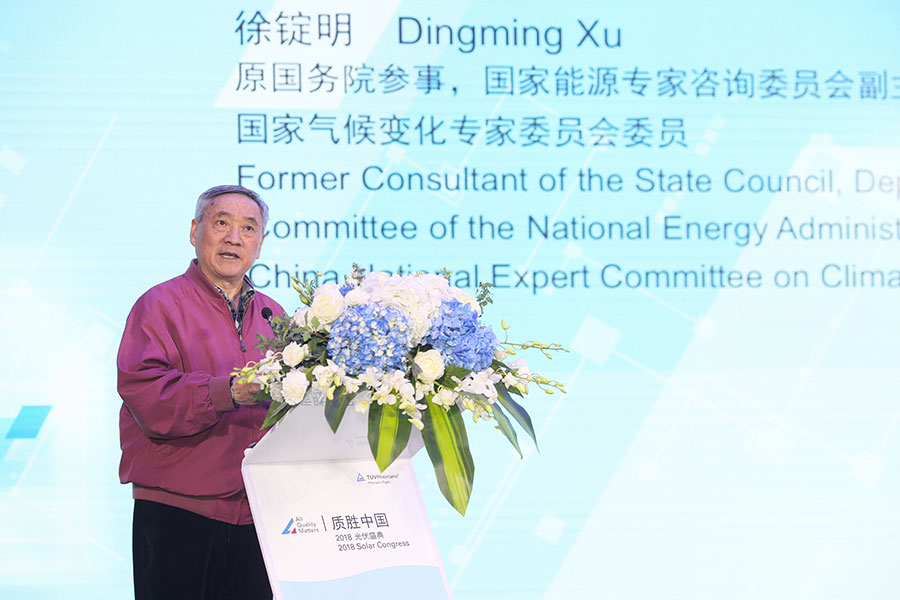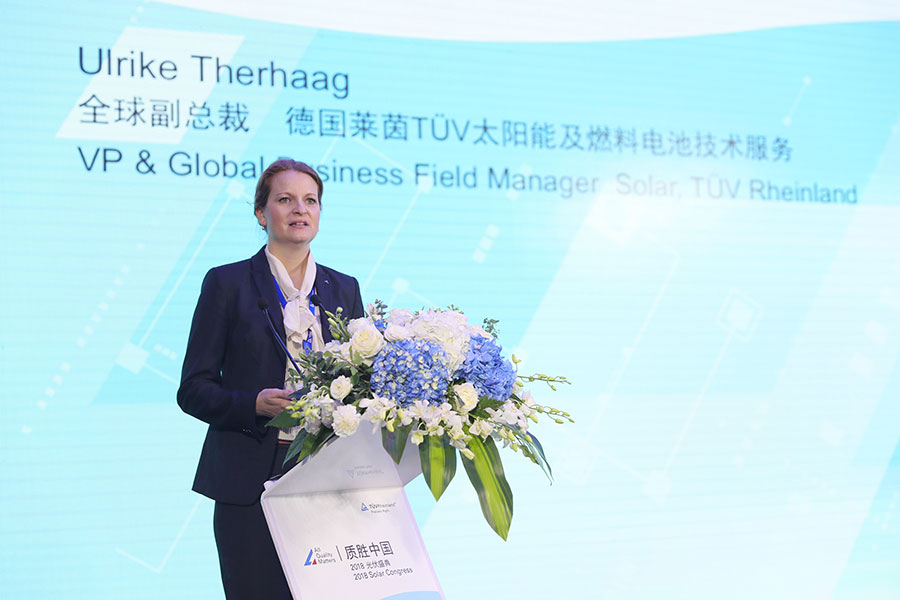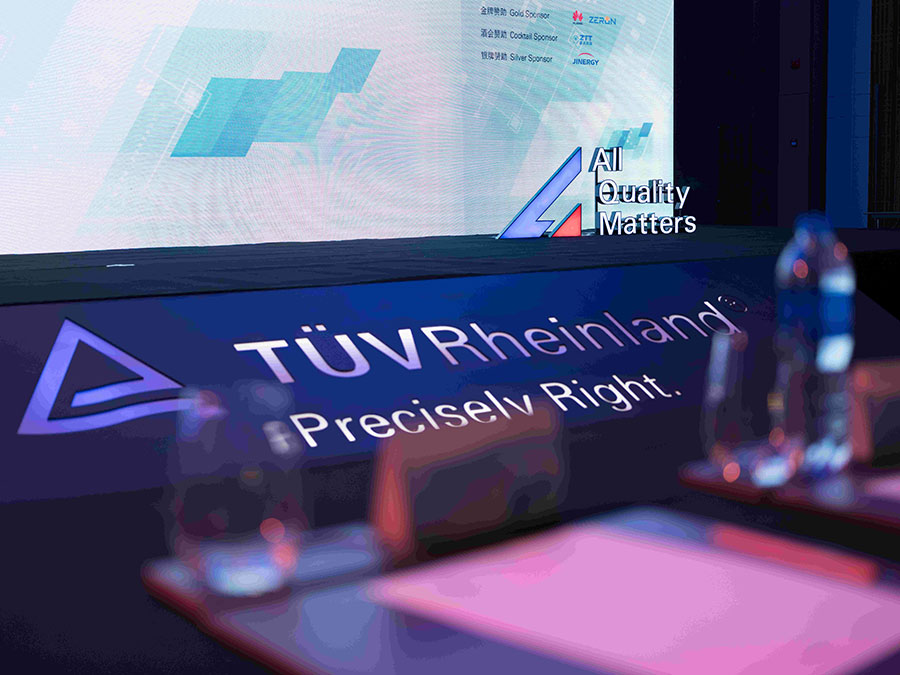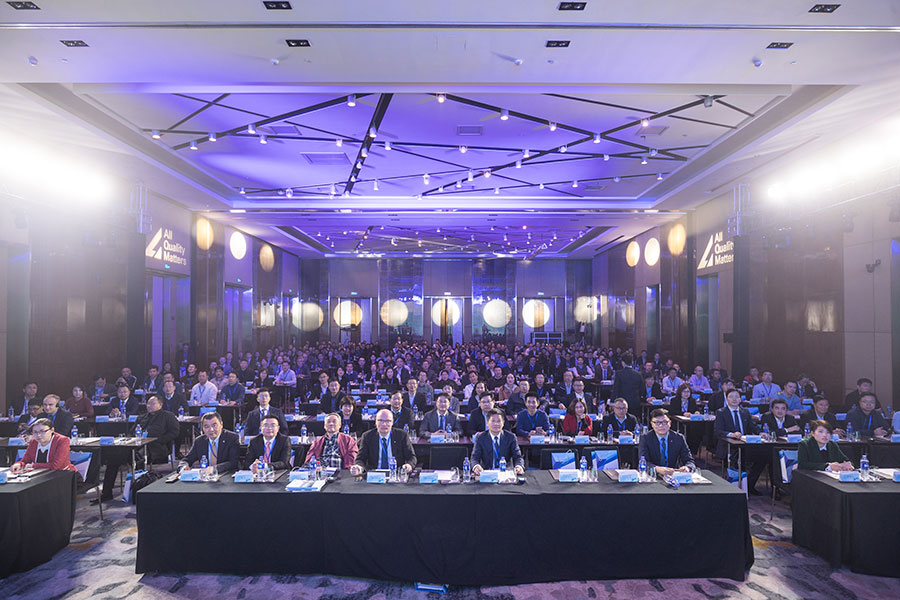Quality key to growth of China's PV industry


China's photovoltaic industry achieved record results in 2017, and experts urge companies to pay more attention to quality enhancement to maintain long-term growth.
Statistics from China's National Energy Administration show that new installed systems added 53.06 GW of capacity to China's solar power industry in 2017, compared to an increase of only 34 GW in 2016. New installations also raised China's overall PV-power capacity to 130.25 GW by the end of 2017, higher than the 110 GW installation goal set for the 13th Five-Year Plan period (2016-20).
"The PV industry achieved the best results over the past five years," said Xu Dingming, deputy director of the Advisory Committee of the National Energy Administration and a former consultant of the State Council, at the 2018 Solar Congress organized by TUV Rheinland on Mar 22. "Strong government policies and growing market demand are key factors that have driven China's PV-power industry growth in recent years."
In addition to the growing capacity, China's PV industry also reported technological skill enhancement, production cost reduction, increased business profitability and stable export, according to Xu. "China has established a strong position in the global PV world," Xu said.
Despite the rapid growth, it's not all smooth sailing for China's PV industry. According to Xu, pressure on the supply side is emerging as more new installed systems have been put into operation. Demand in domestic markets will not be as high as in previous years. The imbalance between supply and demand will lead to price decreases.
Meanwhile, Chinese manufacturers are still not strong enough in high-end battery production. Some key production equipment and components are still relying on foreign suppliers. Challenges such as international trade barriers and subsidy shortages are also constraining China's PV industry's development.

Quality matters
Xu urged PV companies to consider quality as the "foundation for future development" and to continue to promote industrial upgrading to deal with challenges.
Ulrike Therhaag, vice president and global business field manager of TUV Rheinland's solar operations, echoed Xu by suggesting companies should adopt high quality as a strategy and take measures to continuously enhance product reliability.
"Going towards a high quality strategy indicates there is a strong company behind," Therhaag said.
She said companies should undertake additional testing and certification services to further differentiate their products and enhance quality.
"The long-term reliability of the products is very important. What we have seen is that a good differentiation strategy's success in the market not only relies on the basic IEC type approvals for PV modules and PV system components, but also addresses the concern from investors in regards to long-term reliability and a continuous monitoring of quality aspects," Therhaag said.
She said TUV Rheinland, which has been in China for more than a decade, has been transformed from a testing and certification service provider into an important partner that accompanies PV businesses development in China and around the world.
"The PV industry in China has transformed. China has advanced from a PV manufacturing hub to the biggest installation country for PV. In this regard, we transformed with the market and became an even closer partner to the PV industry," Therhaag said.
TUV Rheinland has made significant investments over the past few years to better serve global markets including China.

Apart from expanding office areas and recruiting more employees, the company has set up an outdoor module testing field in Inner Mongolia to allow testing of energy yield, benchmarks, and analysis of any reliability impact that may arise under specific local climate conditions. The testing fields will give evidence on how modules perform under real conditions rather than lab conditions, which are considered equally important by PV system buyers and investors, according to Therhaag. TUV Rheinland has set up identical outdoor measurement sites in the United States, Germany, the UAE and India.
TUV Rheinland also actively participates in China' PV industry standardization efforts and contributes its expertise to leading upgrades in China.
Founded in 1872, the Cologne-headquartered company has been working with Chinese companies in the PV-solar industry since the 1990s.
TUV Rheinland celebrated the 10th anniversary of its PV Laboratory in Shanghai in December last year.
The lab was established in 2007 as China's first wholly foreign-owned laboratory with an all-round localization testing capacity. Over a decade's development, the laboratory has acquired more than 10 large and medium-sized facilities for environmental testing, more than 20 sets of safety testing facilities and various performance testing instruments. It has developed related testing capabilities for PV components, modules, inverters and energy storage systems, and provides professional and accessible testing services to more than 100 domestic customers throughout China and to 30 overseas customers from Germany, the United States, Japan, South Korea and other countries.




































